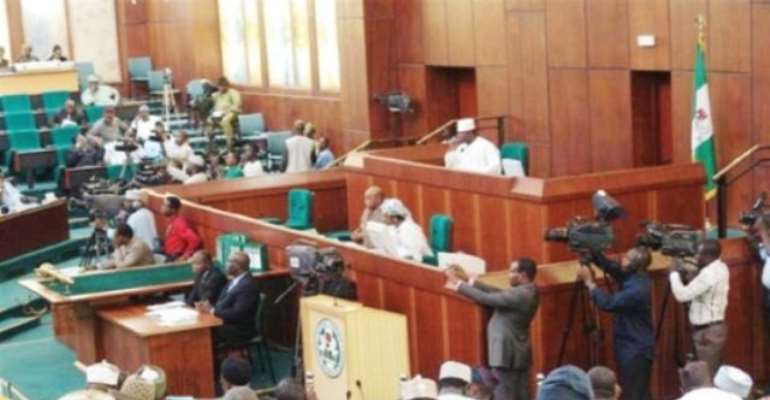Money Laundering: Senators Dread EFCC, CBN's Powers of Surveillance

ABUJA, July 06, (THEWILL) - The Nigerian Senate today continued the deliberation of the Money Laundering (Prohibition) Bill, as many of them expressed reservations that the rights of citizens to privacy may be grossly injured.
Particularly, Section 13 of the proposed legislation empowers the EFCC, Central Bank of Nigeria and other regulatory bodies to rely on ex-parte order obtained from a Federal High Court to place bank accounts and telephone lines under scrutiny.
"The commission, agency, Central Bank of Nigeria or other regulatory authorities pursuant to an order of the Federal High Court obtained upon an ex-parte application supported by a sworn declaration made by the Chairman of the Central Bank of Nigeria or other regulatory authorities justifying the request, may in order to identify and locate proceeds, properties, objects or other things related to the commission of an offence under this Act, the Economic and Financial Crimes Commission (Establishment) Act or other law," it says.
"a) Place any bank account or any other account comparable to a bank account under surveillance; (b) tap any telephone line or place it under surveillance; (c) obtain access to any computer system; (d) obtain communication of any authentic instrument or private contract, together with all bank, financial and commercial records, when the account, telephone line or computer system is used by any person suspected of taking part in a transaction involving the proceeds, of a financial or other crime."
On the strength of those fears, the lawmakers amended its Section 13 (b) to read, "Tap any suspected telephone."
Chairman of the Senate Committee on Judiciary, Senator Umar Dahiru, while contributing to the debate said the ‘human rights implication was obvious with the power given to the agencies to place accounts under surveillance.
"This is democracy; we are not in the military regime where you can just get into people’s privacy. I want to enjoy my freedom. We have to take a critical look at this section, if we allow it, it may be unfair," he said.
James Manager (PDP, Delta) cautioned against allowing the section to pass like that stressing that the peculiarities in Nigeria were different from what obtains in developed countries.
"I have warned that this bill is very technical and dangerous. We don’t have to make a law against ourselves, especially given agencies the powers to tap telephone lines," he said.
Deputy Senate President, Ike Ekweremadu, who presided was able to obtain a majority vote to get the section passed after some amendments.
